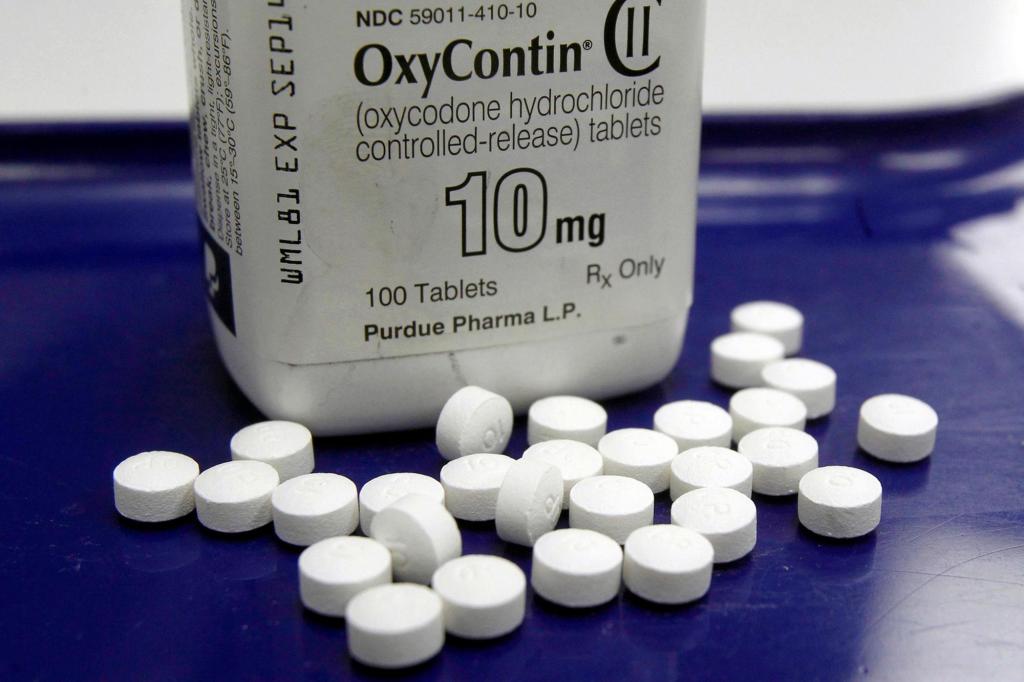That OxyContin is highly addictive is well known, as is that Purdue Pharma’s intensive marketing of the opioid painkiller led to thousands of overdose deaths and the company’s bankruptcy in 2013.
But a new study in the July 19 issue of Health Affairs, led by researchers at the Yale School of Public Health, shows that the marketing of OxyContin also brought a rise in infectious diseases and fatal heart infections.
Authors Julia Dennett, a postdoctoral associate, and Gregg Gonsalves, associate professor of epidemiology, say in the study that marketing of OxyContin, the Purdue Pharma brand name for extended-release oxycodone, led to an increase in hepatitis and deaths from infective endocarditis, a bacterial infection of the heart valves.
“By comparing U.S. states that saw heavier OxyContin promotion with states that experienced less, the Yale study shows for the first time that this marketing caused long-term rises not only in overdose deaths but also in hepatitis diagnoses and deaths from infective endocarditis,” Yale said in a statement.

“The most shocking finding is that we’re still seeing the ramifications of marketing decisions from 25 years ago,” said Dennett, in the statement.
OxyContin was introduced in 1996 and, by 2002, reached $1.5 billion in sales, representing 7 million prescriptions, according to the paper. Sales tactics included offering free meals and trips. Prescribers were told OxyContin was safe to give to patients other than those with cancer, according to the paper.
“There was a lot of misleading information in the advertising materials,” Dennett said in the statement about the study. “They very much downplayed the risks of addiction.”
Dennett and Gonsalves compared states where OxyContin was promoted most heavily with those where it was marketed less heavily. They focused on the years after 2010, when OxyContin pills were made difficult to crush. People addicted to the painkiller then began turning to injecting other opioids, such as heroin and fentanyl, the paper states.
Intravenous drug use can spread hepatitis, HIV and other diseases.
Previous studies showed that, after OxyContin was introduced, areas of the country with higher cancer rates began to report more deaths from opioid use and that states that required more paperwork to prescribe opioids had fewer such deaths, because Purdue Pharma reduced its marketing in those areas.
The Yale study compared the states with higher and lower cancer rates and states that required more or less prescribing paperwork, dividing states into high, middle and low in marketing exposure, according to Yale.
The researchers found that death rates from opioids, as well as rates of hepatitis A, B and C, HIV and endocarditis, rose once OxyContin was made less easy to crush and ingest, so that those with substance use disorder began to inject other opioids.
The rates of infection in high- and low-marketing states were similar before 2010, when OxyContin was reformulated, they found. But as much as 10 years later, the rates of death and disease were much higher, they found.
“Prior to 2010, among these states, there were generally no statistically significant differences in these outcomes. After 2010, you saw them diverge dramatically,” Dennett said.
Between 2010 and 2020, the high-marketed states saw, per 100,000 residents, 5.3 more deaths, 0.85 hepatitis B cases, 0.83 hepatitis C cases and 0.62 cases of death from infective endocarditis.
The paper states that there was limited data available on HIV rates before 2010 and no access to Purdue Pharma’s marketing data. Not all of states’ policy changes after 2010 were available.
To avoid a future crisis, Dennett recommended limiting the ability of the pharmaceutical industry to market drugs or to influence regulatory bodies. She also called for support for those areas harmed by OxyContin marketing.
“Policymakers can promote harm-reduction services to try to reduce the spread of infectious disease and reduce overdoses, and they can also take steps to expand access to treatment for opioid use disorder,” she said in the release.
The research was supported by the National Institute on Drug Abuse of the National Institutes of Health.
Purdue Pharma could not be reached for comment.
Ed Stannard can be reached at estannard@courant.com.
𝗖𝗿𝗲𝗱𝗶𝘁𝘀, 𝗖𝗼𝗽𝘆𝗿𝗶𝗴𝗵𝘁 & 𝗖𝗼𝘂𝗿𝘁𝗲𝘀𝘆: www.mercurynews.com
𝗙𝗼𝗿 𝗮𝗻𝘆 𝗰𝗼𝗺𝗽𝗹𝗮𝗶𝗻𝘁𝘀 𝗿𝗲𝗴𝗮𝗿𝗱𝗶𝗻𝗴 𝗗𝗠𝗖𝗔,
𝗣𝗹𝗲𝗮𝘀𝗲 𝘀𝗲𝗻𝗱 𝘂𝘀 𝗮𝗻 𝗲𝗺𝗮𝗶𝗹 𝗮𝘁 dmca@enspirers.com


